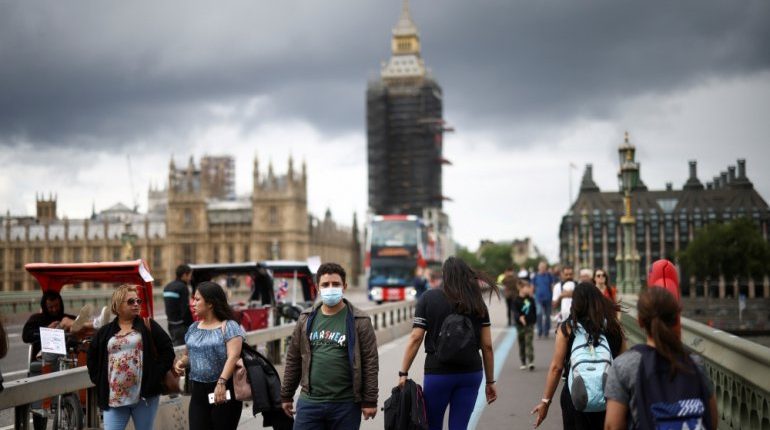British Prime Minister Boris Johnson will set out plans for the final step of easing COVID-19 lockdown in England on Monday, including guidance on social distancing, face coverings and working from home.
After imposing the most onerous restrictions in Britain’s peacetime history to battle the novel coronavirus, Johnson is preparing to lift most restrictions in England on July 19 with a final decision due on July 12.
Data suggests that cases will continue to rise as restrictions are eased, the government said, but the link to hospitalisations and deaths has been weakened by the vaccination programme.
People will learn to live with COVID as they do already with flu, Johnson is expected to say, meaning that hospitalisations, serious illness and deaths will continue but at a much lower level than before widespread vaccination.
Britain has suffered the seventh highest global death toll from COVID-19, and Johnson has faced criticism for his decisions over the timing of each of England’s three lockdowns.
But the take-up of vaccines in Britain has been strong, with 86% of adults receiving a first dose and 64% receiving two doses as of Sunday, government data shows.
Britain is lifting restrictions as countries like Australia, which have much lower case numbers but a slower vaccine rollout, as seeing more restrictions imposed.
Johnson credited the success of the vaccination programme with helping England progress through the roadmap out of lockdown.
“But I must stress that the pandemic is not over and that cases will continue to rise over the coming weeks,” Johnson said in a statement released by his office
“As we begin to learn to live with this virus, we must all continue to carefully manage the risks from COVID and exercise judgement when going about our lives.”
Cases of COVID-19 have risen in recent weeks, driven by the now-dominant Delta variant, and the final step of lockdown easing was delayed by four weeks to enable more people to be vaccinated.
Data from Public Health England show that vaccines are highly effective in preventing severe illness and hospitalisation from Delta.
Housing Secretary Robert Jenrick said on Sunday face masks would no longer be mandatory after the final step in lockdown easing.
“We’re going to be shifting much more to an approach which is where there is guidance, but you take personal responsibility… about what is the right thing to do to protect yourself and others,” junior health minister Helen Whately told Sky News on Monday.
Source:reuters.com





